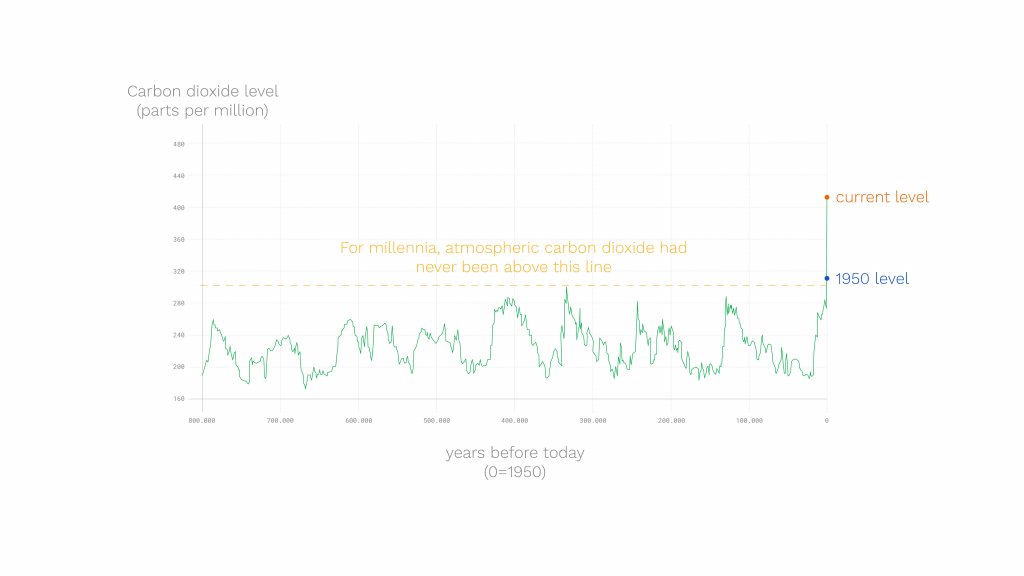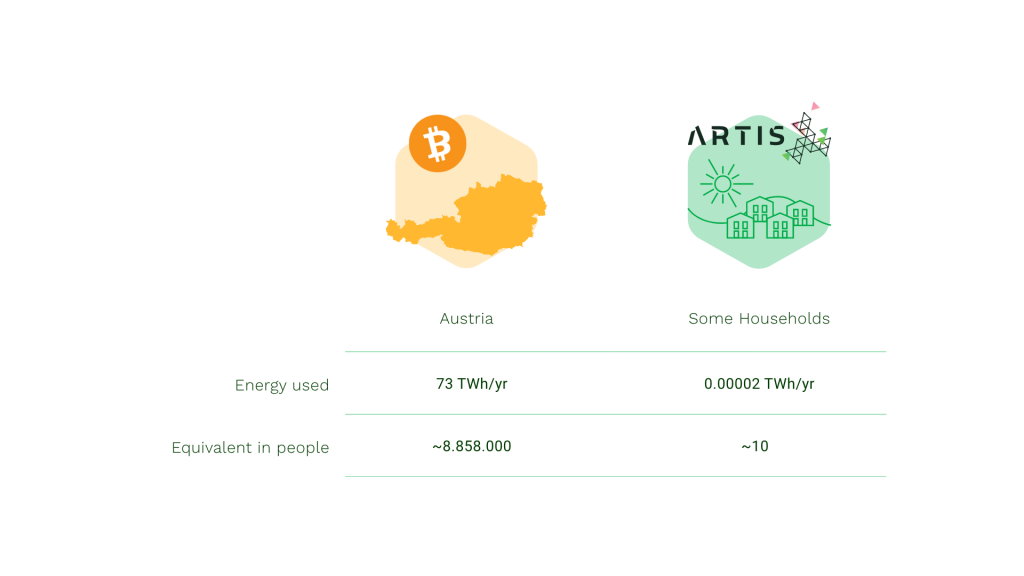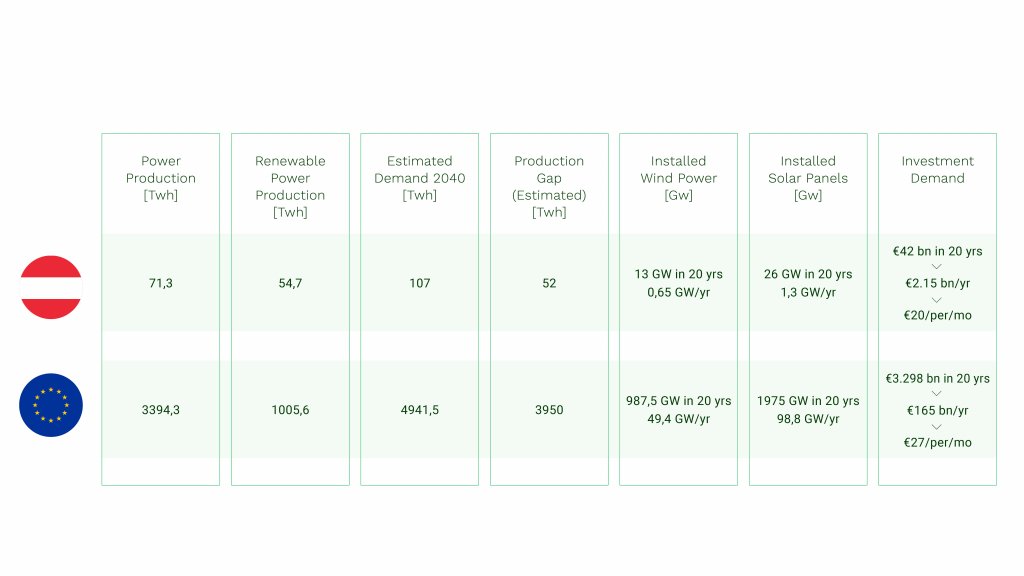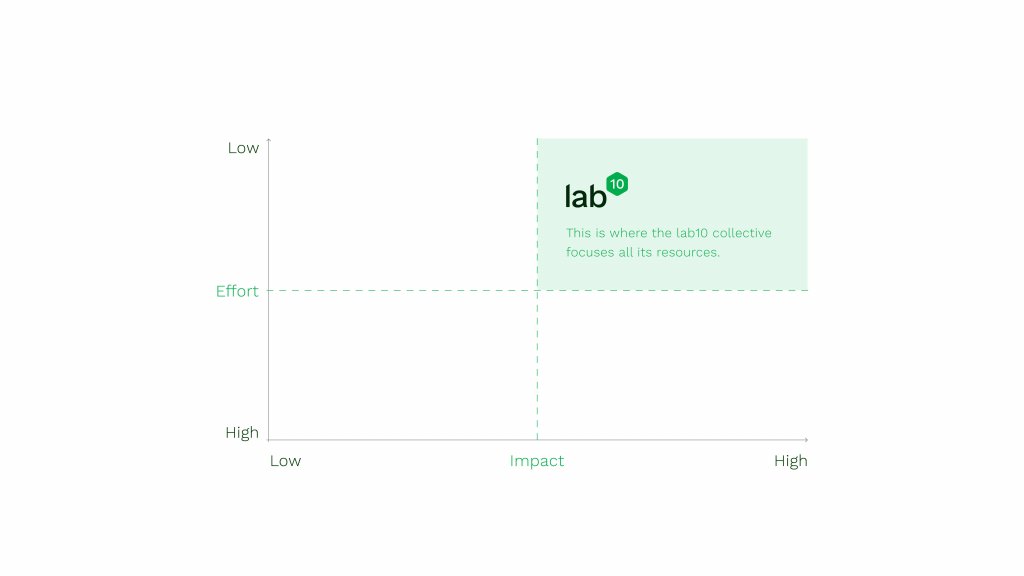Our Secret Master Plan Revealed
September 28, 2019
12 min. read
Dedicated to mindful generations to come.
At lab10 collective, our rooted belief is for Earth to stay a livable place; human economic activity needs to be governed by sustainability considerations first. We aim to move from a fossil fuel powered society to a zero-carbon society – or what others like to call a post-carbon economy – in equilibrium with Earth, as we believe this is the only viable option for mankind to prevail on Earth. Let’s cure humanity of the greatest tragedy of the commons, the depletion of our Earth’s atmosphere, into the wealth of the commons through scalable, trustless community collaboration and sharing.
This post will explain how we will go about this daunting undertaking. The plan will outline the current status quo of climate action, why humanity has failed miserably so far, the new opportunities we have at our hand and what we the lab10 collective will do to help a zero-carbon society to unfold. An audacious and exciting journey lies ahead. We invite you; no, in fact, we require you and all your peers, to become a part of it too! Only then will we be able, as a common, to sustain life on Earth as we know it today.
The Status Quo
People say that the children of the Fridays-for-Future movement and many others are exaggerating and are alarmists, while they merely rub decision-makers’ noses in undeniable facts and objective climate data. They confront them with the uncomfortable fact, that under their leadership we have miserably failed at protecting our most dear common good: Earth’s atmosphere. With this inexcusable sin, our leaders have sacrificed future generation’s basis of life and means of existence on Earth for the sake of short term and anyways unsustainable economic gains. They have ‘externalized’ the undesirable effects of their carbon fueled economies, utterly disregarding that they and their offsprings are rooted on Earth too.
There are a lot, a lot, a looot and a lot more scientific research and empirical data that all suggest one thing: There is a clear causality between greenhouse gas emissions in the atmosphere and rising temperatures. We are adding 37 Gigatones of extra carbon to Earth’s natural carbon cycle per year and the net result is that the carbon in the oceans and the atmosphere have grown to a level where it cannot be absorbed by the ecosystem. In the last decades, this rise has emerged to an unprecedented vertical parabolic curve unseen in Earth’s last million years of existence.

All this is topped by the reality that we humans need to transition out of the fossil fuel era anyways. It is inevitable and at a certain point, we will run out of mine-and-burn mineral resources on Earth. So, the question is when do we exit and not if, to then move to a sustainable energy supply. So, what do we gain by slowing it down? And what do we lose, when fact of the matter is that the sensitivity of the climate to temperature is extremely high. 5º Celsius less and NYC is under ice, 5º Celsius more and NYC is underwater while three-quarters of the world’s mega-cities are by the sea.
Despite all of this, all developed nations continue to fail year after year on delivering even on the least common denominator as defined in the Paris Climate Agreement. And the most powerful nation (looking at you USA) that supposed to lead, instead has irresponsibly decided to double down on their exploitation efforts by leaving the Paris Agreement and further invests into fracking. Short-sighted short term profits at the cost of its citizens and the nature that was never part of the considerations anyways. They have chosen ruthless geopolitics instead of collaborative efforts. Old reflexes and old receipts while our very base of life continues to deplete. Clearly, our leaders and the ‘elite’ have failed for decades and continue to fail.
So, this is the dire reality in 2019. Existing climate data are facts and no subject to debates!
Why Is This Tragedy Happening?
It is a combination of the so-called tragedy of the commons and (in its current form), misaligned economic incentives and a failing capitalist system with its misaligned shareholder value approach.
Earth’s atmosphere is undisputedly the most precious common good as it is the protecting shield for the miracle called life on Earth. As such, it is a shared, seemingly ubiquitous resource that cannot be easily regulated or denied to anybody. Thus, it has fallen victim to the free-rider problem since the age of industrialization.
Since then, corporations are easily able to extract economic gains without compensating for the damage caused or by being penalized for their harmful behavior. So, in reality society subsidizes carbon-producing activities due to its untaxed negative externality. This results in unreasonable profits and sets economic incentives to do carbon-emitting activity as these costs to society are not being paid. The result of this economic madness is 37 Gigatones of CO2 emissions per year from fossil fuels and an effective subsidy of $5.03 trillion per year according to the IMF. As a base for comparison, this equates to 13% of global economic output! Now imagine this misplaced resource allocation plunged into renewables. Clearly it is not capital that we lack. This economic misalignment is further underpinned by the shareholder value approach which forces such corporations to solely satisfy shareholder’s rent-seeking expectations.
Reality is that all these businesses that are not in an equilibrium of economical, ecological and social sustainability are not sustainable at all and only exists due to the failure of markets, regulators and the shareholder value approach.
Clearly, with regards to the fair valuation and protection of the atmosphere, as the most precious commons, we face a systemic problem without any cure so far, while time is ticking.
A New Way to Organize Commons
Commons initiatives are best compared to cooperatives such as the lab10 collective. It is owned & governed by its members towards a mutually beneficial goal. In our case, the objective of a globally coordinated protection of our atmosphere, has never been tackled by any cooperative before.
Today’s data suggest that effective commons management seems to have only worked on a small scale so far, all of which are following Elinor Ostrom’s 8 universal principles to manage commons. This is due to the inherent trust problem these cooperatives are hitting into, as they grow and then fall prey to the free-rider problem at a varying but low threshold. So, they have proven not to be sufficiently scalable outside of smaller communities.
Therefore, until today large scale human coordination around protecting commons have been whether organized by markets (private ownership) or states (government intervention). However, neither of these have resulted in a satisfactory outcome when it comes to protecting and adequately ‘pricing’ our atmosphere. A growing number of humans and living species can physically and painfully feel the consequences by now while we have barely hit the very tip of the iceberg.
Humanity is in dire need to seek new ways to coordinate and the key to that is by fixing the trust problem of commons on a global scale.
With the advent of open, decentralized, permissionless and trustless blockchain systems, new ways to coordinate are on the horizon. Given the stakes, we believe collaborative effort has to be put into finding the winning formula and we are determined to assemble all the building blocks to deliver exactly that. Before we outline how we will go about this daunting undertaking, we first need to clarify a severe misconception of the public about blockchain technology.
Clarifying a Misconception About Blockchain Technology
There is a lot of misconception in mainstream media about blockchain technology. Given most of these media outlets are plugged into existing power structures with strong incentives to maintain the status quo, the messages they send is without surprise. You have to be aware of the messenger after all.
They say that blockchain technology consumes a vast amount of energy, and therefore it is not sustainable. This is a severe misconception and could not be further away from the truth! Only a certain type of consensus mechanism, namely the Proof-of-Work or the so-called Nakamoto Consensus, is energy intense. Albeit that one is very energy intense, the Bitcoin protocol consumes currently around 73TWh per year and growing. This is more energy than what Austria’s entire population and economy consume together. That is without a doubt quite a heavy hitter.
However, new generations of consensus mechanisms are by orders of magnitude more efficient. No-one talks about these in mainstream media. As a comparison, the ARTIS blockchain that is being developed by the lab10 collective consumes 99.9999% (!!!) less energy than Bitcoin. Or to put it differently: Bitcoin requires the energy of a country of the size of Austria (and growing), while 1.000x more performant ARTIS blockchain requires less than 100 average Austrian households to run reliable and secure on a global level. Which blockchain would you use to fight climate change?

The ARTIS blockchain consumes 1.000.000x less energy than Bitcoin.
So, the energy consumption issue is solved and on top of that comes all the killer features of blockchain systems. Let’s share some light on why decentralized, open, permissionless and trustless, peer-to-peer blockchain technology is the only viable underpinning infrastructure to solve the world’s biggest problem of the commons:
- Decentralized; meaning there is no single point of failure as there is no central entity that runs the network. Therefore, the network cannot be shut off. This is a feature we the commons need, as the fight for our atmosphere is without compromises a 24/7/365 effort and no central power should be able to hinder it.
- Open; meaning everybody can access it from anywhere disregarding borders, may they be natural or man-made. Your assets on a blockchain are only yours without anyone able to seize them. This is a feature we the commons need, as creative force can come from any angle of the world and should have means to make itself seen.
- Permissionless; meaning you do not have to ask for permission to access the network and with it all its benefits. This is a feature we the commons need, as the fight for our atmosphere should be unstoppable and not tolerate any authority whatsoever.
- Trustless; meaning you can trust others without having ever met and transacted with anyone on a global scale within means of seconds. The protocol sets the rules you both trust. This is a feature we the commons need, as described above in the context of the commons.
- Peer-to-Peer; meaning there is no single centralized party between the transacting entities. This is a feature we the commons need, as there should be no systemic rent-seeking possibility for middlemen when it comes to protecting our climate.
The Magnitude of the Challenge
Nation states are failing, nation’s coordinated efforts are failing and for corporations, climate action is frequently a matter of marketing and ‘corporate social responsibility’ at best. Lethargic pointing at established centralized institutions has proven to have no effects and is without a doubt no formula for success for the future. It is time to take matters into the hands of the commons to solve the climate crisis independent of governments, corporations and national boundaries. With decentralized technologies, we have now the means to coordinate on a supra-national level. We can act without asking for permission. We invite governments and corporations to join (remember, blockchain systems are open) and support us, but we the people will act either way.
Let’s look at the numbers: Considering the challenge purely in means of financial resources, it may look daunting on an accumulative basis but on a per capita basis the required contribution is within the means possible. In times of negative yields, quantitative easing and undermined fiat money even more so.

Let’s take the EU with its current energy mix as a basis. By now on EU-average renewables count for 17.5% of the energy mix. This is quite far from the defined objective in the Paris Agreement and that is required to halt temperature rises above 2º Celsius, bearing in mind that this agreed common denominator will already make particularly endangered islands vanish and kill most of our coral reefs. Some EU countries perform better like Austria with 32.6% renewables, others are catching up like Germany with 15.5% and some laggards have to get their act together like Poland with 10.9%.
Taking these number as a basis, a mere €1 per person per day for 3 years would suffice to offset an average European individual (excl. flights). This is less than a bloody espresso! Considering what is at stake for future generations, this looks like the most asymmetric investment opportunity each of us has ever faced while it is also clear that every single one of us has a role to play.
Now that we all have a common understanding of the magnitude of the challenge, let’s outline what will the lab10 collective do over the next 10 years to enable a net-zero carbon society to unfold:
What We Will Do?
When plotting our activities as a collective our primary decisions are driven by two main dimensions of consideration:
- Impact
The reduction of CO2 emissions is the key cornerstone of our considerations. Therefore, we examine what the expected impact – measured in reduction of CO2 emissions – of any given execution opportunity is. - Effort
We ask ourselves how big the effort is to achieve the expected reduction of CO2. We have limited resources and need to make sure we put our eggs into baskets that can be lifted too.
With the above in mind, we evaluate opportunities based on how the effort/impact considerations pave out and go for those that offer high impact at low effort. Let’s visualize this:

Given ARTIS is an open, public and permissionless blockchain system it can be utilized for a myriad of de-carbonization initiatives. Therefore, we have decided to split and bundle our operation into two divisions:
ARTIS Ecosystem Division
This division is tasked with the job to forge partnerships with organizations that produce ecologically sustainable products that substitute products on the market that require the burn of fossil fuels. Core areas are blockchain-enabled e-mobility solutions and renewable energy systems for renewable energy communities.
We have already delivered multiple proof-of-concepts (POC) in the areas of e-mobility and energy systems with companies such as Easelink, go-e or Energie Kompass and expect to move these into production. We will double down on these efforts and plan to deliver more POCs with the objective to inspire hardware producers as well as others to adopt our solutions.
For e-mobility solutions we will be focusing on:
- Backendless peer-to-peer electric vehicle charging solutions;
- E-mobility sharing systems;
- Token based incentivisation.
For renewable energy solutions we will be focusing on:
- Immutable proof-of-origin of renewable energy sources;
- Automated trading and settlement of renewable energy sources;
- Tokenization of renewable energy sources.
All the smart contract systems we develop will be open-sourced and made available to the public to adopt and build upon.
If you know of a sustainable business that seeks to expand on blockchain-enabled use cases, than make sure to send them our way. We will make sure that together we will maximize their de-carbonization impact.
1 Earth | 0 Carbon Fund Division
The set objective for the 1 Earth | 0 Carbon Fund is to propel the transition to renewable energy sources and to ultimately switch all electricity supply to decentralized renewables. Now, one may ask how we can achieve this and how on earth is this a low effort undertaking? Well, we believe it all boils down to a radically transparent, tamper-proof and trustless cooperation of the following actors:
- Climate conscious investors that wish to offset their carbon footprint. Such investors are each and every one of us to the extent of €1/day to offset ourselves first;
- Switching prosumers that can provide sufficient roof space for the installment of a renewable energy source but are in need of capital to accomplish the transition;
- Enabling providers with the skills and reputation able to plan, build and monitor the renewable energy installations.
The key feature of such a coordination-platform that supports the cooperation of these actors lies in the transparency and tamper-proof flow of both money and energy to all parties. This is exactly what the ARTIS blockchain is designed for and is the best at. It is an open, public and permissionless Ethereum Sidechain and as such it builds atop today’s most robust and adopted financial settlement layer while as an independent chain it ticks all the boxes we need for zero-carbon commons to rise. It will soon be accompanied by Minerva, a decentralized identity and asset management system that will be a key building block to further alleviate trust relationships and the coordinative effort of the commons.
So how is all of this low effort? The key is in incremental results which can be achieved with remarkably manageable effort while there is a clear, tangible connection between an effort (e.g. word-of-mouth activism) and its impact (decision by a household to install solar panels on their roof). Reality is that we will be having the first POC of a blockchain connected solar panel up and running by early 2020. Everything starts small and in a testbed, this POC will be able to collect and allocate the lab10 collective member’s carbon off-set to renewable projects. The entire process from collection, to allocation, to energy consumption and funds payback will be made transparent and traceable to the public.
Once the system has proven itself and all lab10 collective members are set-off we have achieved full consistency in our objective and what we do. Then we will be ready to move forward and invite the public to follow us in our endeavor. The objective is to reach each and every climate-conscious person and to get them both to invest as well as transition to a renewable energy source. With them on board we hope to reach the remaining laggards too, up until the transition to a zero-carbon society is accomplished. May sound bold but foremost it is necessary!
Let’s Be The Change Together
As a collective, we can achieve objectives that are beyond ourselves as individuals. Key is the collaboration of an interdisciplinary group of like-minded people. The lab10 collective is open to everyone; if you would like to be an early bird and be a part of our work as early as possible then do not hesitate to join our ranks. As a member, we will make sure your carbon footprint is set off as part of the 1 Earth | 0 Carbon Fund. We seek for activists, people with a whole range of professions, open-minded people, bold people and foremost people with a passion for sustainable living.
Now that all our plans are made available publicly, we also invite you to carry it forward to your peers, organizations or your very own plans. We would love to hear from you and your contribution to a #zerocarbonsociety.